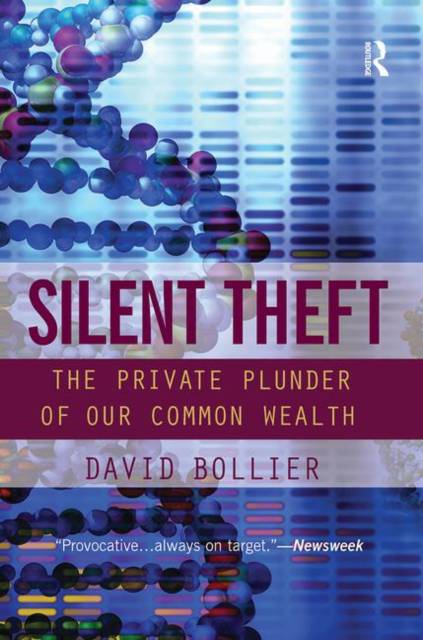
- Retrait gratuit dans votre magasin Club
- 7.000.000 titres dans notre catalogue
- Payer en toute sécurité
- Toujours un magasin près de chez vous
- Retrait gratuit dans votre magasin Club
- 7.000.0000 titres dans notre catalogue
- Payer en toute sécurité
- Toujours un magasin près de chez vous
Description
'They hang the man and flog the woman That steal the goose from off the common, But let the greater villain loose That steals the common from the goose.' - Traditional nursery rhyme Until a 1998 federal court decision, a Minnesota publisher claimed to own every federal court decision, including Roe v. Wade and Brown v. Board of Education. A Texas company was recently allowed to calm a patent on basmati rice, a kind of rice grown in India for hundreds of years. The Mining Act of 1872 is still in effect, allowing companies to buy land from the government at USD5 and acre if they pan to mine it. These are resources that belong to al of use, yet they are being given away to companies with anything but the common interest in mind. Where was the public outcry, or the government intervention, when these were happening? The answers are alarming. Private corporations are consuming the resources that the American people collectively own at a staggering rate, and the government is not protecting the commons on our behalf. In Silent Theft, David Bollier exposes the audacious attempts of companies to appropriate medical breakthroughs, public airwaves, outer space, state research, and even the DNA of plants and animals. Amazingly, these abuses often go unnoticed, Bollier argues, because we have lost our ability to see the commons. Publicly funded technological innovations create common wealth (cell phone airwaves, internet addresses, gene sequences) at blinding speed, while an economic atmosphere of deregulation and privatization ensures they will be quickly bought and sold. In an age of market triumphalism, does the notion of the commons have any practical meaning? Crisp and revelatory, Silent Theft is a bold attempt to develop a new language of the commons, a new ethos of commonwealth in the face of a market ethic that knows no bounds.
Spécifications
Parties prenantes
- Auteur(s) :
- Editeur:
Contenu
- Nombre de pages :
- 272
- Langue:
- Anglais
- Collection :
Caractéristiques
- EAN:
- 9780415944823
- Date de parution :
- 07-02-03
- Format:
- Livre broché
- Format numérique:
- Trade paperback (VS)
- Dimensions :
- 153 mm x 232 mm
- Poids :
- 439 g

Les avis
Nous publions uniquement les avis qui respectent les conditions requises. Consultez nos conditions pour les avis.






